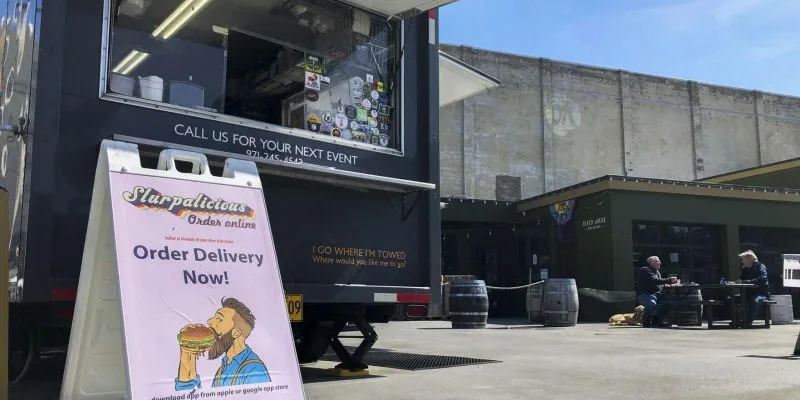Food delivery abounds south of Columbia, lacks to the north (Coast river business journal)

Many urban cities across the country recently capped the fees big food delivery companies like DoorDash, UberEats, and GrubHub could charge restaurants. The general standard for this cap is 15% of the food order. Big delivery retaliated with lawsuits arguing that such fee caps were unconstitutional.
The city caved and relaxed the fee cap [1]. For example, San Francisco will allow big delivery to have higher priced plans as long as they have at least one plan that charges 15% for “core delivery”. Eateries could then pay more for other services like increased visibility and promotion.
Seems fine right? The issue is that these 15% “core delivery” plans will result in little to no delivery orders for the restaurant. This will force them to go to the higher priced plans which are typically 25% to 30% of the food order. Hardly different from what’s been typical in the recent past.
What happens on these 15% core delivery plans is that the eatery is not very visible, the delivery radius is small, and fees for customers is the highest [1, 2, 3]. This means big delivery still makes the same amount of money on these orders, except they just take it from you, the customer, instead of the eatery. The other big issue is visibility, for example, Uber Eats won’t list eateries on the cheap plan on their order screen. Customers will actually have to manually search for the restaurant name to order.
Volume and visibility are the two main reasons eateries choose food delivery. With the cheap “core delivery” plans, they loose both. If eateries chose Slurpalicious, they would be paying a simple, clear, and affordable commission (9% currently). They would experience no listing limitations and customers won’t be charged higher fees when ordering. They would also get commission-free pickup ordering that’s standard on all our plans.
These fee caps are set to expire this winter, and the eateries are going to have to make a choice. Choose the cheap plan and get little to no orders, or move to the business-as-usual fee of about 30%. Alternatively, eateries could start supporting community-focused delivery services like Slurpalicious that are making it their mission to care about them, the drivers, and the customers.[Read More]
Add Comment
Your email address will not be published. Required fields are marked *
